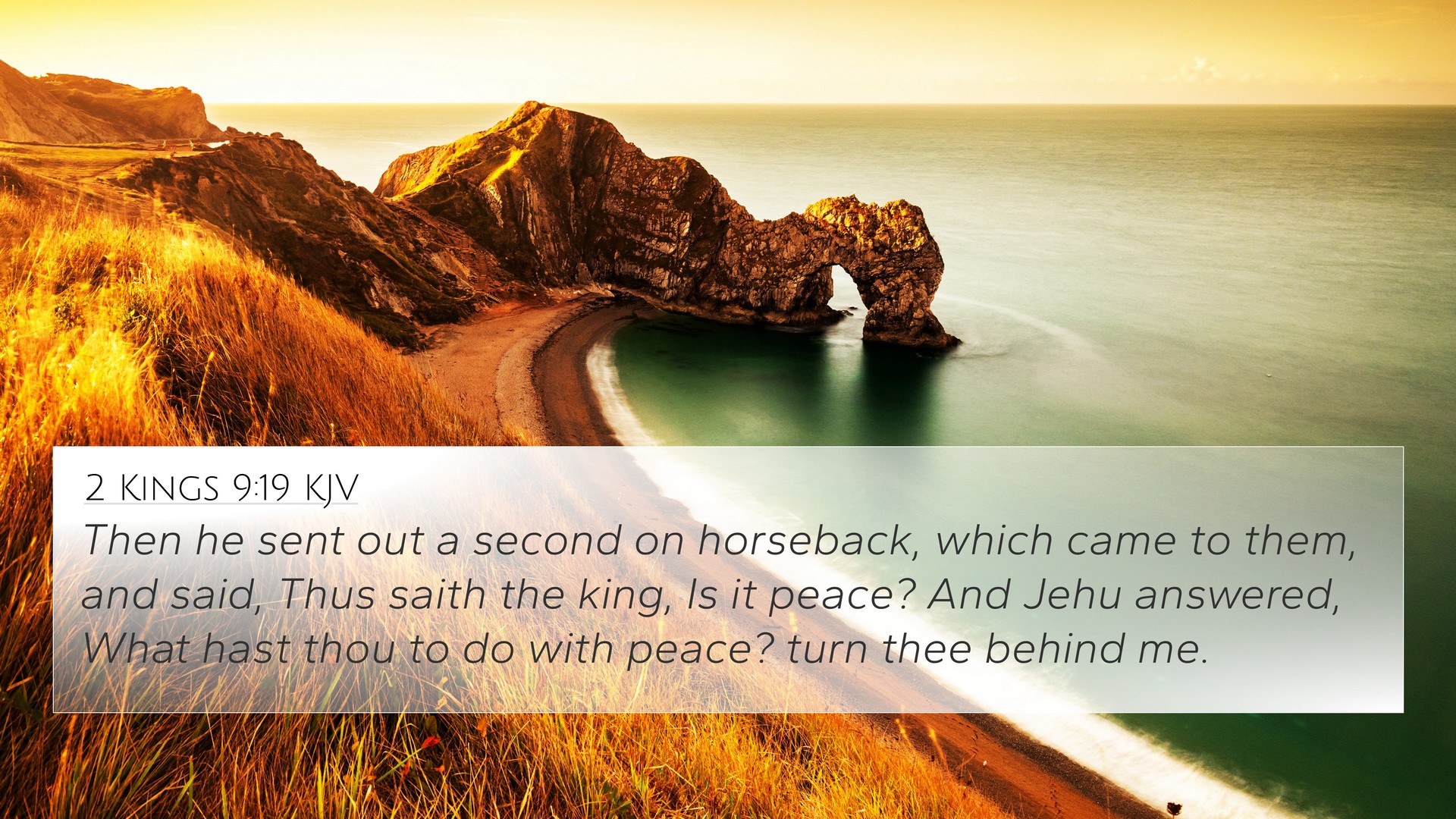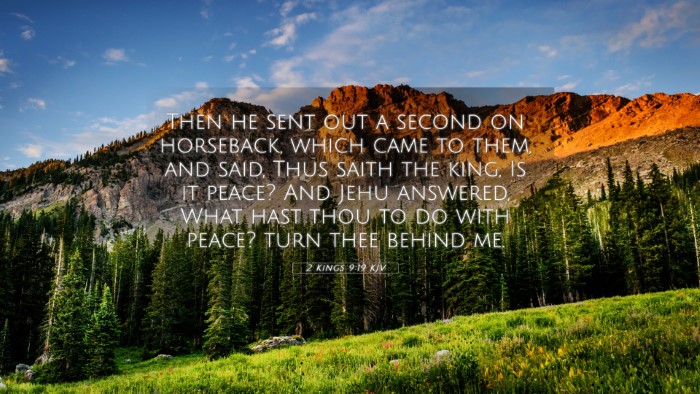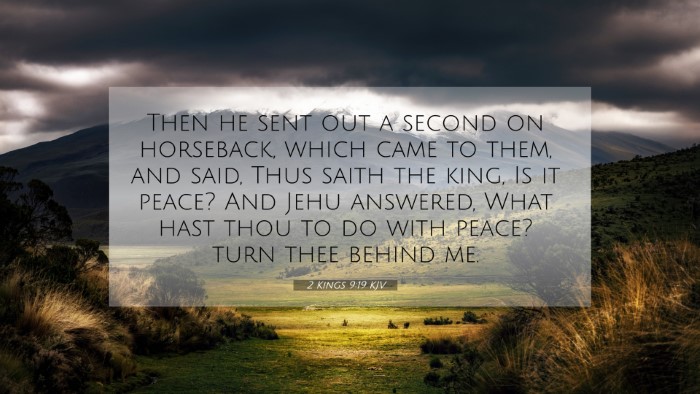Meaning and Interpretation of 2 Kings 9:19
Verse: "Then Jehu the son of Jehoshaphat the son of Nimshi conspired against Joram. Now Joram had been defending Ramoth Gilead, he and all Israel, against Hazael king of Syria." (2 Kings 9:19)
Overview
This verse marks a critical moment in the historical narrative of the Kingdom of Israel, focusing on Jehu's rise to power and the political tensions of his time. It illustrates the confluence of divine providence and human action, portraying the unfolding drama of God's judgment upon the house of Ahab.
Commentary Insights
-
Matthew Henry: Henry emphasizes the significance of Jehu's character and calling. He interprets Jehu's conspiracy as a divinely orchestrated plan to fulfill God’s judgment against Joram and Ahab's lineage. Jehu’s action is not merely political but is seen as part of God’s providential plan.
-
Albert Barnes: Barnes delves into the historical context, noting the importance of Ramoth-Gilead in the conflict with Syria. He highlights that Joram's defense there represents the struggles of Israel against its enemies and the consequential judgment prophesied against Ahab's house, showing the interconnection of divine justice and national affairs.
-
Adam Clarke: Clarke provides a detailed analysis of Jehu's lineage and motivations. He argues that the reference to Jehu's ancestry underscores his legitimacy as a leader. Moreover, he emphasizes the urgency and inevitability of the judgment that follows in the narrative, suggesting that Jehu’s actions were both justified and necessary.
Key Themes
- Divine Judgment: The text illustrates God's judgment against the House of Ahab through Jehu, who was anointed to bring about this change.
- Political Conspiracies: Highlighting the political machinations of the time, this verse indicates that such actions are often part of a larger divine plan.
- Legacy and Ancestry: Jehu’s lineage is emphasized, suggesting that God's purposes can be fulfilled through individuals regardless of their backgrounds.
Cross-References
- 1 Kings 19:16: The anointing of Jehu signifies the fulfillment of God’s command to eliminate the house of Ahab.
- 2 Kings 10:6: This verse chronicles Jehu’s ruthless approach to purging Baal worship from Israel.
- Hosea 1:4: God's declaration regarding judgment upon the house of Jehu underscores the weight of Jehu's actions.
- 2 Kings 9:7: Further insights into Jehu's calling to avenge the blood of the prophets.
- 1 Kings 21:21: The foretelling of calamity upon Ahab and his house relates to the executions carried out by Jehu.
- 2 Kings 8:28-29: The alliances between Syria and Israel provide context for the conflict Jehu was entering.
- Revelation 6:10: The cries for justice resonate with Jehu’s mission to avenge the blood of the prophets.
Thematic Connections
This verse also emphasizes the broader themes of kingship, divine intervention, and prophecy. By studying 2 Kings 9:19 and its cross-references, one can observe significant connections between various biblical accounts. The links between the narratives of kings, prophets, and the divine will highlight the intricate web of biblical theology in the Old Testament.
Practical Application
For modern readers, understanding 2 Kings 9:19 involves recognizing God's sovereignty in human history. It provides lessons on leadership, divine justice, and the importance of following God's calling, reflecting on how individuals and nations can be instruments of divine purpose.
Tools for Bible Cross-Referencing
Utilizing cross-reference tools like a Bible concordance or Bible cross-reference guide can enhance your study of this verse and its connections to others. These resources offer insights into both thematic and narrative parallels, allowing for a comprehensive examination of scripture.


